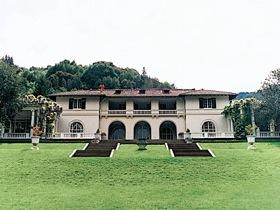A Mind to Advance Modern Music
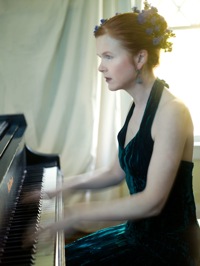 Charles Amirkhanian's brave and excellent Other Minds organization is making plans for an exciting new season — adjectives supplied by This Column, rather than the press release, which has only "tremendously interesting" in describing Dane Rudhyar.
Charles Amirkhanian's brave and excellent Other Minds organization is making plans for an exciting new season — adjectives supplied by This Column, rather than the press release, which has only "tremendously interesting" in describing Dane Rudhyar. Who? That is so Other Minds to program a concert of music by Rudhyar (1895-1985), a "composer who has never received the attention we believe he deserves."
Born in Paris, as Daniel Chennevière, and disabled at age 12, Rudhyar lived in Los Angeles, and died in San Francisco. His music ranged from the chromatic heritage of Liszt and Scriabin, to the "school" of Ives, Ruggles, Cowell, and Varèse. It's been described as "essentially melodic and rhapsodic."
Other Minds' Rudhyar observation will take place on Sept. 27 (in San Francisco's Swedenborgian Church) and Sept. 29 (at the Valley Presbyterian Church in Portola Valley), with five chamber works, to be performed by pianists Sarah Cahill and Julie Steinberg, violinist David Abel, and the Ives Quartet. The first concert will be preceded by a panel discussion including Leyla Rael Rudhyar Hill, the composer's widow, and Deniz Ertan, Rudhyar's biographer.
Pianist Cahill, a longtime advocate of Rudhyar, albeit with a touch of common sense, says:
In his instructions to pianists, Rudhyar writes about the "psychic intensity of the tones" and that "the performer should try to experience the tones, to allow them to resonate into his own inner being."The next Other Minds Festival will be held March 3-5, 2011, at the S.F. Jewish Community Center, featuring eight composers who will bring their works to be studied and performed over the course of a week's residency:That sounds pretty nutty, but when you live with his music every day, practicing it for hours, you do start believing in what he calls "the 'livingness' of the tones." He loves combining huge dissonant chords at the extremes of the keyboard, as if he's embracing all of harmony and every possible range of pitches and dynamics.
It's in the lineage of the mystical music of Scriabin, but also completely original.
Louis Andriessen and Han Bennink from the Netherlands, I Wayan Balawan from Indonesia, Kyle Gann, Janice Giteck, David Jaffe and Jason Moran from the U.S., and Agata Zubel from Poland.
Performers include Fred Frith (guitar), Cristina Zavalloni (soprano), Monica Germino (violin), Andrew Schloss (percussion), the Del Sol String Quartet, the Seattle Chamber Players, and Jason Moran's Bandwagon.
Benefit for East Oakland School of the Arts
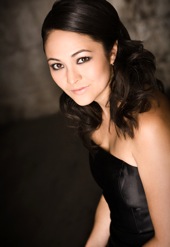
Mezzo Debi Wong, with a recent graduate degree from Yale School of Music's Voice Program, and Arianne Abela, a fellow Yale alumna (in choral conducting), are teaming up for a benefit concert on July 23 at Berkeley's St. Mark's Church.
Admission is by donation and all proceeds will go to the East Oakland School of the Arts.
The program includes a song cycle for mezzo-soprano and piano by San Francisco composer Joseph Gregorio, Vivaldi's Gloria, and Colin Britt's newly commissioned House of Clouds, to be premiered at this event.
The chorus consists of alumni from Yale University and members of San Francisco Girls Chorus.
The orchestra is made up of professional players from the Bay Area who are donating their time.
Says Wong:
The idea for this concert was inspired by a joint passion Arianne and I have for supporting and fostering music in young and aspiring artists. This is our first benefit concert, but we intend to give one every summer to support young artists and arts schools from our respective communities.
More on L.A. Ring Mismanagement
Following up on last week's report on the $31 million Los Angeles Opera production of Wagner's Ring ending up with a $5.9 million deficit:
Ivan Katz, writing in The Huffington Post, doesn't make nice about "How Do You Lose $5,960,000 on an Opera?" — should be four operas, but that's not the point.
On July 2, 2010, The Los Angeles Times reported that the Los Angeles Opera's production of Richard Wagner's Der Ring des Nibelungen lost $5,960,000. A deficit this stunning could only have happened as a result of world-class incompetence. Mere provincial incompetence cannot explain it.According to Los Angeles Opera Chief Operating Officer Stephen Rountree, who by rights ought to be wearing a large red nose and a clown suit, $4,000,000 (or roughly two thirds of the deficit) was the result of ticket sales failing to meet projections.
The nicest thing that can be said of this is that the Los Angeles Opera was engaged in a multi-year exercise in Faith Based Financial Planning, better known as "God will provide." It is a management failure without parallel in American opera history.
No Deficit for Ring ... in China
How to be absolutely certain that producing the Wagner Ring will not bankrupt a company? Do it the old-fashioned way (as Wagner did), and have somebody subsidize it.
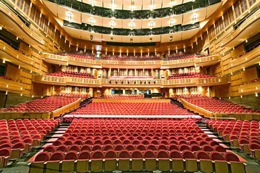
As part of the current Shanghai EXPO, the German Pavilion presents two ful cycles, each on consecutive days, which is unusual — most productions give singers, the orchestra, and the audience a day off between operas. It will be the first full production of the Ring in China.
As the premium seats in the Shanghai Grand Theater for the four nights sell under $900 (in contrast with San Francisco's $2,800, which is far from the most expensive price for the cycle), it's rather obvious that there are contributions from either the German or the Chinese government, or both.
This is Robert Carsen's 2003 production from Cologne, sets, costumes, and more than 300 company members to be flown to Shanghai. Performance dates are Sept. 21-24 and Sept. 16-19.
Another Fiscal Tale, From New York
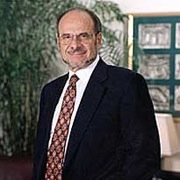
Opera Brittania comments on the Metropolitan Opera's Fiscal 2009 accounting statement, released last month, and showing a 20 percent drop in investment values, down to $246 million, and similar decline of total assets, down to $423 million:
It's no surprise to anyone that the Met endowment has shrunk in this economy, and it's virtually impossible to Monday-morning quarterback whether, with different management, it might have done better or worse.The drop, to merely mortal eyes, seems extreme, as does the increase in salaries (up about $6 million). Individual salaries, generally an infinitesimal part of any budget, tend to inspire interest well out of proportion to their real impact. In truth most people in the business are worth more than they are paid, and replacements are hard enough to come by, but for those interested, Peter Gelb pulled down, all told, roughly $1.5 million (as did Music Director James Levine, listed as "Phramus, Inc.," undoubtedly his corporate entity).
If anyone ever tells you the chorus is as important as the orchestra, you ask them why Donald Palumbo, our excellent Chorus Master, is getting less than one-third of Mr. Levine's compensation.
This is just a little more than Joseph Volpe, the former general manager, seems to be getting on a yearly basis as severance for doing nothing. Tell the truth: wouldn't you like to be getting between $350,000 and $400,000 a year, years after you left an organization, as "deferred compensation"? Would you like to rethink your feelings about the House of Windsor now?
Montalvo: 'Strauss to Sondheim'
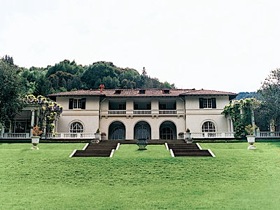
After a four-year hiatus, Montalvo Arts Center is again offering summer concerts on the Great Lawn of the historic Saratoga villa. A "Strauss to Sondheim" twilight concert is scheduled for Aug. 22, beginning at 5 p.m.
George Cleve will conduct the Symphony Silicon Valley; the soloist is Lisa Vroman. The program includes waltzes of Strauss, Sondheim, and others, along with the music of Gershwin and show tunes written with a Viennese dance tempo.
Ticket prices are unusually high for such a summer open-air event: $69.50 for lawn chairs in the reserved area, $49.50 for the lawn (BYOB — bring your own blanket).
Other summer events feature Richie Havens (July 15), Lily Tomlin (July 17), and Dave Koz and Jonathan Butler (Aug. 6). Chamber music in the fall: Saint Michael Trio (Oct. 17), Parker Quartet (Nov. 14), and Cypress String Quartet (Jan. 16, 2011).
Would You Help Getting Mario to the Bolshoi?
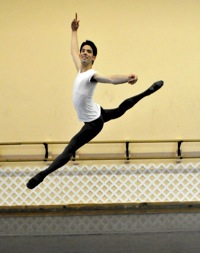
Alameda's Mario Vitale Labrador has grown up dancing with the Oakland Ballet, whose founder, Ronn Guidi, says, "From the beginning, Mario was an extraordinary talent. He has superb classical technique, his musicality is wonderful and he realizes every role with taste and integrity."
Artistic Director Lauren Jonas of Diablo Ballet says, "Mario is an aesthetically beautiful dancer with extraordinary technical ability and a wonderful performing quality."
Labrador is now 19, and he hit the jackpot: admission to the Bolshoi Ballet Academy in Moscow for a graduate course, which could net him a graduate certification for "Choreographic Art — Ballet Dancer," something that belongs to dozens of the great ones in ballet history, along with current San Francisco Ballet principals Maria Kochetkova and Gennadi Nedvigin.
All that's standing between the dancer and beginning training in Moscow in September is the cost of tuition and transportation — several thousand dollars. For more information and to help along with fund-raising, visit his Web site.
Post-World Cup Opera

Naples' hallowed Teatro San Carlo will be the venue on July 13 for a concert, which includes an opera titled El Diego, about Diego Maradona, former Argentine football star, currently the disgraced manager of the Argentine national team. The composer is Roberto De Simone, and the occasion would be much more festive if the Maradona-coached team had not been eliminated early in South Africa.
The first half of the concert is taken up by Litanies for the scandalous and magnificent — Hymn to Isis, a cantata for 12 vocalists, two soloists, and the San Carlo Opera chorus. It is to reflect the "opposing and contradictory" aspects of Maradona: the virtue, the magic of the 1986 World Cup winner, on one hand (also known as the "Hand of God"); the irrationality, the folly, on the other. All against a big screen for the projection of that past glory.
De Simone, the composer, is quoted to have said: "I composed these litanies thinking that Maradona's triumphs have happened in Naples like sacred events, similar to religious holidays in honor of the Madonna."
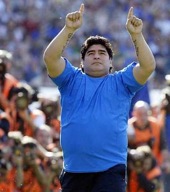
The second part of the concert, apparently unrelated, is the Paganini Violin Concerto No.1, with Eduardo Zosi as soloist.
Elsewhere, in the real world, South African composers and writers celebrate the South African College of Music's centenary year with five new 20-minute operas with plots based on Saartjie Baartman, Lucy Lloyd and the Bushmen, Xenophobia, the assassination of Chris Hani, and Breyten Breytenbach’s prison poetry.
The works are presented by Cape Town Opera, in collaboration with UCT Opera School and the Gordon Institute of Performing and Creative Arts. They are sung in Afrikaans, Xhosa, English, and Zulu with English supertitles.
The rest of the company's season consists of Rossini's Il Viaggo a Reims, Strauss' Der Rosenkavalier, and Donizetti's Lucia di Lammermoor.
Pasadena's Conductor Non-Tryouts
The Pasadena Symphony, which parted ways in April with Jorge Mester, its longtime music director, has chosen four conductors to lead concerts of its 2010-2011 season, but the administration is stating specifically that they are "not candidates to become the next music director." Why not combine guest conductors and hands-on "auditions"?
The only thing that's stranger is that the orchestra passed over Pasadena Pops Music Director Rachael Worby or anyone else from the area, which is rich in conductors, young and old.
Joining newly appointed Artistic Director James DePreist (73, and not a candidate for the job) will be Tito Muñoz, 28; Matthias Bamert, 68; George Stelluto and Maximiano Valdés.

